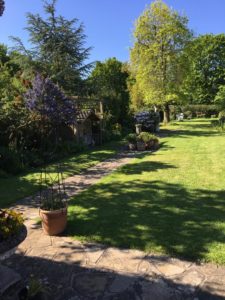Dear Integral Meditators,
Mindfulness is, in essence the art of attention training. Looked at this way there are many, many ways of paying attention, and so there are a huge variety of mindfulness practices. The list below lists ten ‘mindful domains’, each of which play an important part in a truly integral mindfulness practice.
If you enjoy the article, then do have a look at the new Integral Mindfulness Program, which explores many of these practices in depth!
In the spirit of mindful wellbeing,
Toby
 The Integral Mindfulness Program for Coaches, Counselors and Therapists – Creating sustainable high performance and deep wellnessOverview: This is a six-session dynamic mindfulness program designed for:
The Integral Mindfulness Program for Coaches, Counselors and Therapists – Creating sustainable high performance and deep wellnessOverview: This is a six-session dynamic mindfulness program designed for:
- Those looking for an engaged, practical mindfulness course designed to build resilience, effectiveness and wellness in the face of work and life challenges
- Trainers, coaches and therapists looking to integrate mindfulness into their own professional practice with clients
- People who have been through basic conventional mindfulness training programs and are looking for the next level of practice and performance
Early bird offer: Get 20% off if you sign up before end Monday August 19th. Click here for full details
 Ten essential mindfulness meditation practices
Ten essential mindfulness meditation practices
Mindfulness is, in essence the art of attention training. Looked at this way there are many, many ways of paying attention, and so there are a huge variety of mindfulness practices. The list below lists ten ‘mindful domains’, each of which play an important part in a truly integral mindfulness practice
- Grounding your attention in your body, sense and breathing awareness – The quickest route to basic psychological sanity and stability is through the senses. We should be aiming to develop ‘mountain like stability’ on our body and senses, which enables us to feel centred and stable even in the biggest life storms.
- Practicing the non-emergency nature of the present moment – Most situations in our life are not an emergency, yet we spend much of our life in minor (or major) crisis-mode. Recognising present safety and relaxing properly enables us to enjoy our life, and when it does arise to engage risk and danger wisely and intelligently.
With practice 1& 2 solid, we can then commit to increasing your range of functional states and perspectives through:
- Cultivating effective focus and concentration – Specifically with integral mindfulness we look to develop high quality ‘mindful flow states’, both in and out of meditation. These flow states are a combination of relaxation and focus, and act as the basis for sustainable, effective concentration
- Witnessing, observing, listening, being present – We should be continually stepping back and improving our capacity to observe what is going on within our field of awareness as an observer; being present, witnessing and nothing more.
- Committing to be aware – Number five is simply an ongoing commitment to turn and face ourselves, and notice what is going on within. It means consistently turning the light of our awareness inside with curiosity, courage, care
- Developing your emotional intelligence – Specifically: Being comfortable feeling emotions ( (both positive and negative), cultivating engaged detachment (the capacity to feel emotions fully and engage with them deeply without being consumed or victimised by them). Cultivating acceptance, appreciation, joy and benevolence/caring as our baseline emotional states. Getting to know the emotions we currently label as ‘negative’ well enough to find and leverage upon their value.
- Cognitive intelligence – The skills of thinking less in terms of quantity, thinking better in terms of quality. Also combining ‘positive thinking’ and attention to the good with critical thinking and effective risk assessment.
- Intentionality and responsibility – Living our life deliberately and ‘on purpose’. Expanding the depth and range of our intention and motivations for our actions. Setting intention before our actions, so that our actions are aligned with our highest intentions.
- Developing your capacity for creative awareness that accesses the non-linear, unconscious, intuitive and imaginative aspects of our potential.
- Having an enlightenment practice – A commitment to ongoing insight into the formless, timeless causal dimension of existence. Learning to rest our attention in it and gradually focus our fundamental sense of identity there.
Article content © Toby Ouvry & Integral Meditation Asia 2019.
Upcoming classes and workshops
Ongoing on Wednesday’s, 7.30-8.30pm (Restarts 21st August) – Wednesday Meditation for stress transformation and positive energy with Toby (Bukit Timah)
Ongoing on Tuesday evenings (Restarts 13th August), 7.30-8.30pm – Tuesday Meditation for stress transformation and positive energy with Toby (East Coast)
Wednesday 12.30-1.30 – Integral Meditation classes at Space2B on Stanley Street
Saturday mornings 9-10.15am, June 15th, 29th – Qi Gong workout and meditation class
Saturday 10th August, 2-5.30pm – Qi Gong for Improving your Health and Energy Levels and for Self-Healing
FOR BEGINNERS: Saturday 24th August, 11-12.30pm – Get your meditation practice started now- The shortest and most time effective meditation workshop ever
Integral Meditation Asia
Online Courses * 1:1 Coaching * Books * Live Workshops * Corporate









